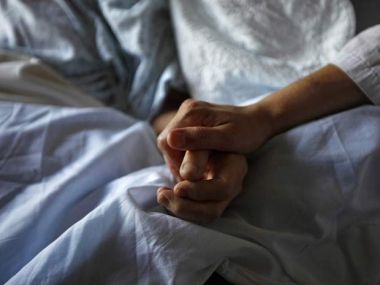'Massive improvement' needed in palliative care, report shows
Most hospitals fail in their care of elderly people, a review has found.

The report is the first since the controversial Liverpool Care Pathway was scrapped. Co-funded by the charity Marie Curie, it found only 11 per cent of hospital trusts in England provide specialist palliative care around the clock.
This means those who die overnight or at the weekend may not have the right care.
Dr Adrian Tookman, a clinical director at Marie Curie said a "real effort" had been made to improve care for the dying.
However he added: "We can't ignore the fact that the vast majority of dying people and those close to them still have limited or no access to specialist palliative care support when they need it in hospital. This is not right, not good enough."
Alastair Thompson, a spokesman for the Christian Medical Fellowship (CMF) told Christian Today the report highlighted the need for a "massive improvement in palliative care.
"It is an area that is too often neglected either because people don't want to talk about it or because it is seen as a 'Cinderella service'," he said.
Thompson went on to say the debate over palliative care was crucial to the question of assisted suicide.
He continued: "One of the main drivers for those people who argue for a change in law on euthanasia is the misinformed belief that people die horribly in hospitals, hospices or at home when in actual fact with good palliative care, and we have the best hospice movement in the world, that is not the case.
"Therefore all our focus and attention should be on providing the very best quality of care for the dying."
The Liverpool Care Pathway was removed in late 2015 after it was criticised as a "tick-box exercise" and left some patients without food and water.
A series of guidelines replaced it which focused on individual patient care rather than a one-size-fits-all approach.











